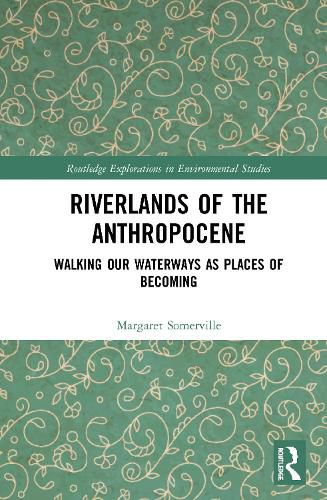Readings Newsletter
Become a Readings Member to make your shopping experience even easier.
Sign in or sign up for free!
You’re not far away from qualifying for FREE standard shipping within Australia
You’ve qualified for FREE standard shipping within Australia
The cart is loading…






This is an invitation to readers to ponder universal questions about human relations with rivers and water for the precarious times of the Anthropocene. The book asks how humans can learn through sensory embodied encounters with local waterways that shape the architecture of cities and make global connections with environments everywhere.
The book considers human becomings with urban waterways to address some of the major conceptual challenges of the Anthropocene, through stories of trauma and healing, environmental activism, and encounters with the living beings that inhabit waterways. Its unique contribution is to bring together Australian Aboriginal knowledges with contemporary western, new materialist, posthuman and Deleuzean philosophies, foregrounding how visual, creative and artistic forms can assist us in thinking beyond the constraints of western thought to enable other modes of being and knowing the world for an unpredictable future.
Riverlands of the Anthropocene will be of particular interest to those studying the Anthropocene through the lenses of environmental humanities, environmental education, philosophy, ecofeminism and cultural studies.
$9.00 standard shipping within Australia
FREE standard shipping within Australia for orders over $100.00
Express & International shipping calculated at checkout
This is an invitation to readers to ponder universal questions about human relations with rivers and water for the precarious times of the Anthropocene. The book asks how humans can learn through sensory embodied encounters with local waterways that shape the architecture of cities and make global connections with environments everywhere.
The book considers human becomings with urban waterways to address some of the major conceptual challenges of the Anthropocene, through stories of trauma and healing, environmental activism, and encounters with the living beings that inhabit waterways. Its unique contribution is to bring together Australian Aboriginal knowledges with contemporary western, new materialist, posthuman and Deleuzean philosophies, foregrounding how visual, creative and artistic forms can assist us in thinking beyond the constraints of western thought to enable other modes of being and knowing the world for an unpredictable future.
Riverlands of the Anthropocene will be of particular interest to those studying the Anthropocene through the lenses of environmental humanities, environmental education, philosophy, ecofeminism and cultural studies.